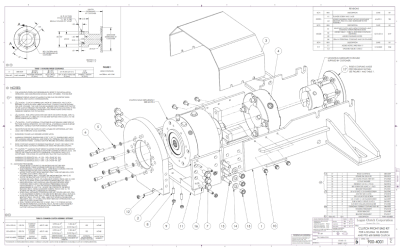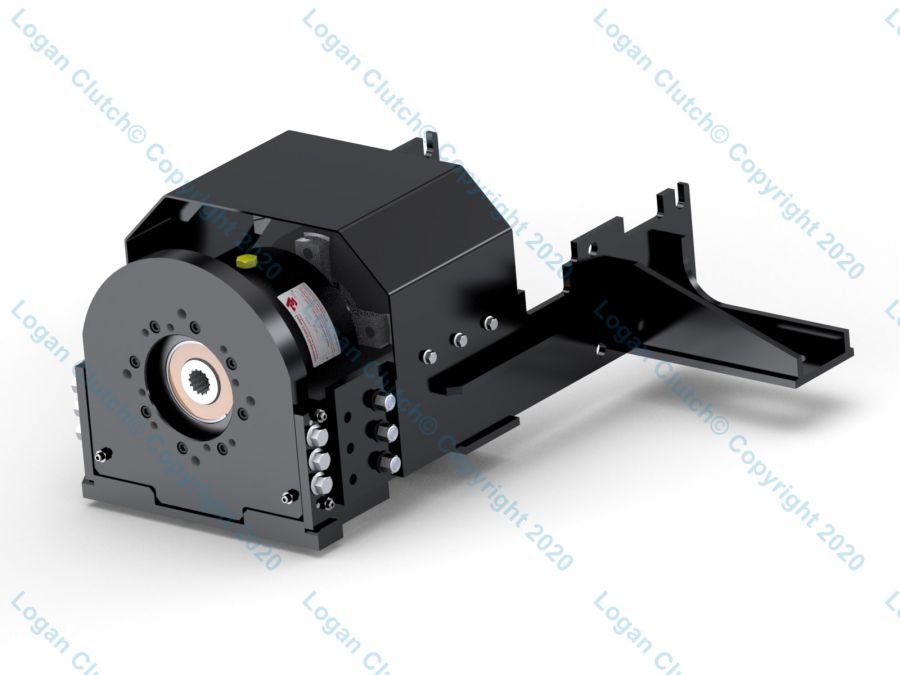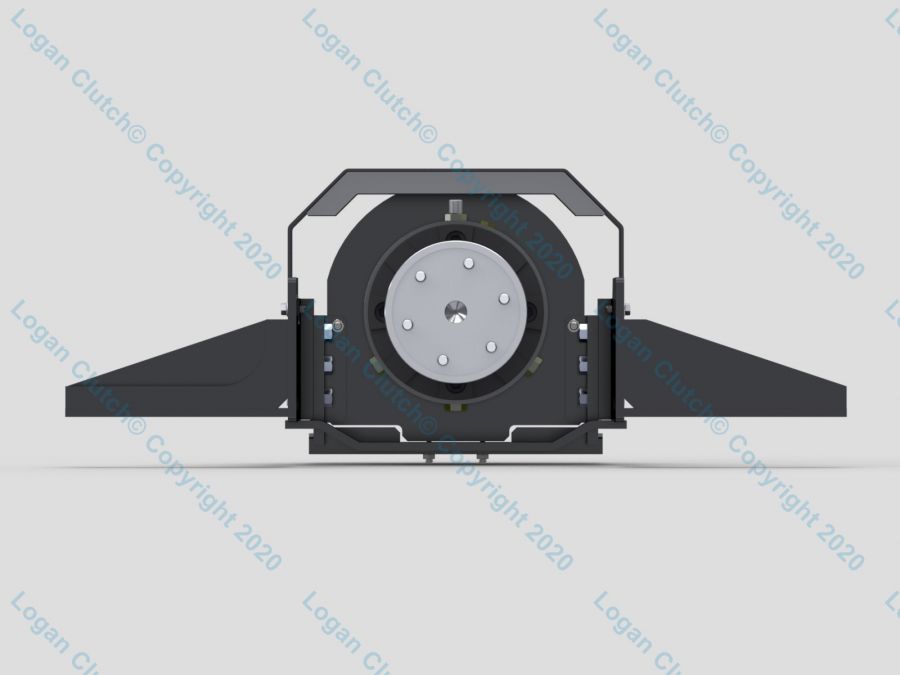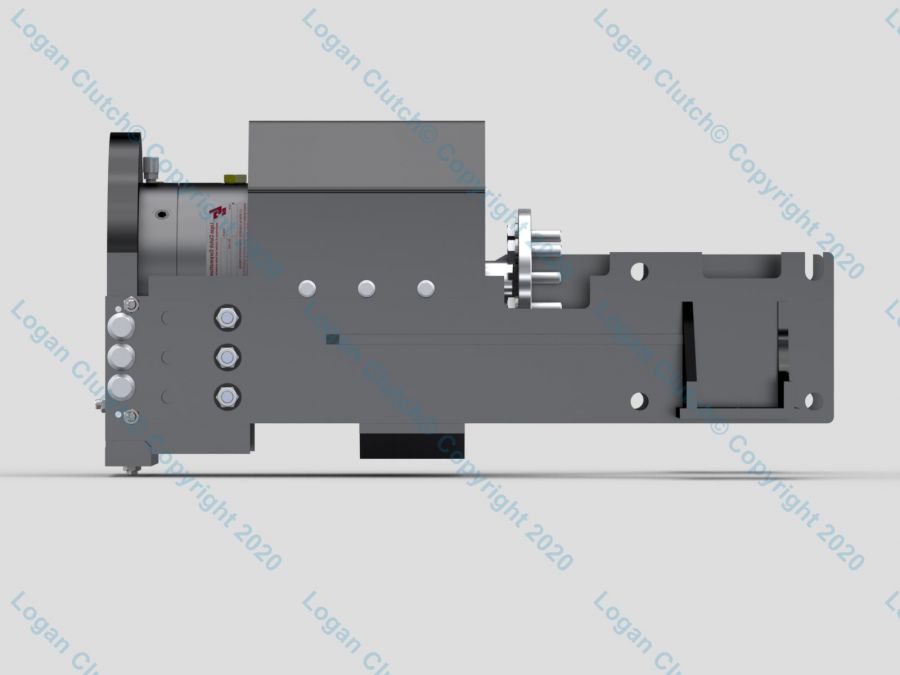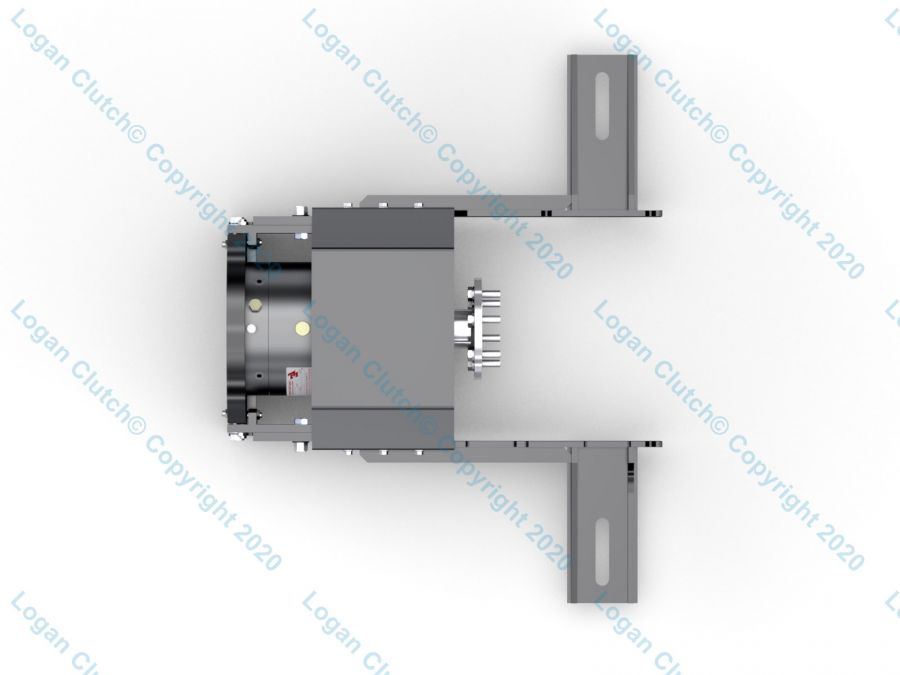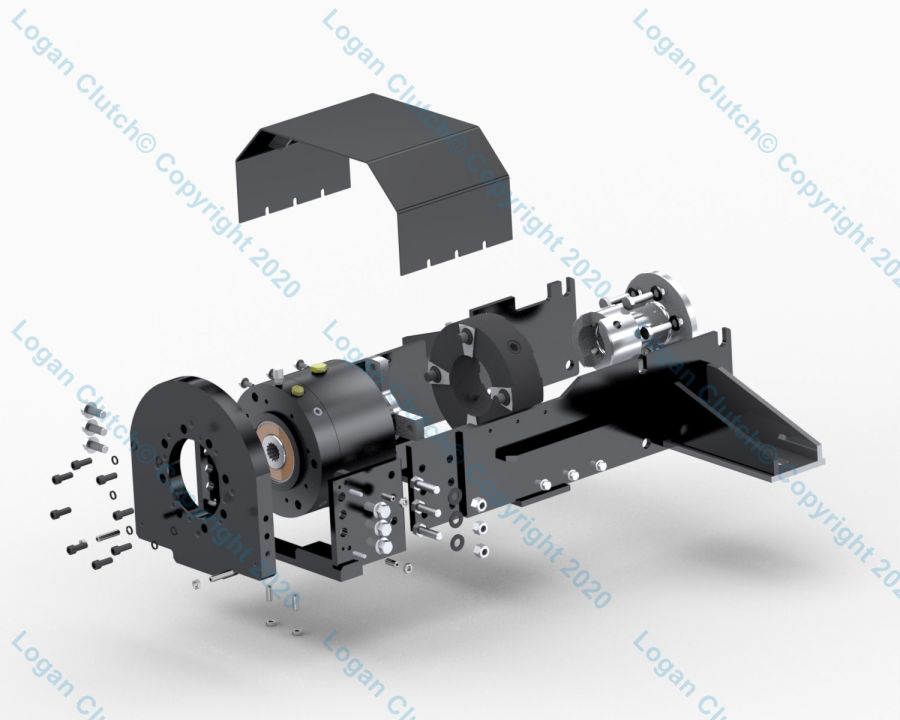900-4001
Front of Engine PTO Clutch Kit Scania 12L
Tech Specs:
Title: Scania12L Engine
Title: SPF 600 Series Clutch Sold Separately.
Title: Review SPF Series Product Selection for Clutch Torque, Actuation Pressure and Output Shaft Spline Offering.
Title: Clutch Rated at 600 Lbs.-Ft.
Title: Includes Bracket, Torsional coupling, Rigid coupling and All Hardware.
Title: Caterpillar Scania12L Engine
Title: Caterpillar Scania12L Engine
Part Number:
900-4001
Description:
Logan PTO’s are used in a variety of Industrial, On-Highway, Marine, Construction, Agriculture, Mining, Oil Field, and Rail
applications – and are designed to mount between the power take-off of the engine and auxiliary attachment, i.e. single or
multi-station pump drive.
Advantages:
-
Reduces fuel consumption and CO2 Emissions by engaging drives and pumps only when required
-
Quicker Starts: Lowers horsepower draw and cranking power required during machine start-up by disconnecting the hydraulic system from the engine
-
Reduced ambient noise through intermittent use of
pumps and equipment
-
Cooler running hydraulic systems: Heat is generated
whenever oil dumps from high to low pressure without producing work. Disconnecting the PTO Clutch reduces the destructive effects of heat – lowering maintenance costs and hydraulic oil requirements
-
Extends the life of drive systems and components
Features:
-
P - Air or fluid actuated
-
Integrated torsional isolation coupling
-
Engineered mounting bracket for precise alignment
-
Maximum torque, small envelope, higher engagement speeds (up to 1800 RPM with SOFTSTART? feature)
-
Low profile, compact, design is suitable for workboats, fishing boats and pleasure craft
-
Heavy-duty, self-contained corrosion resistant design requires no external lubrication
-
Smooth engagement / disengagement
-
Simplified, compact, high torque design
-
Remote activation from a control panel or operator’s station
-
Optional manual engagement screws in case power flow is disrupted
-
Optional shaft adapters for Dana style flanges
-
Oil bath or flow through cooling
Documents:
